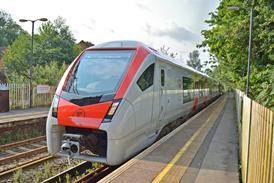REPEATED cries from German Railway Chairman Hartmut Mehdorn about the poverty of his company have brought a favourable response from Transport Minister Reinhard Klimmt. Speaking at the opening of the InnoTrans exhibition on September 12 in Berlin, Klimmt confirmed that he would be allocating additional investment funding to DB worth DM2bn to DM2·5bn a year for the next 10 to 15 years.
A joint statement from Klimmt and Mehdorn on September 21 confirmed that funds would be made available to DB thanks to savings on interest payments made possible by the sale of telecommunications licences. The money will be spent primarily on upgrading and rehabilitation projects which include Offenburg - Basel, Berlin - Frankfurt-an-der-Oder, München - Freilassing, Saarbrücken - Mannheim, Berlin - Rostock and Berlin - Hamburg. Klimmt in return is expecting DB to make huge improvements in its efficiency, and he has set a target of doubling the amount of freight carried by rail by 2015, although he was not specific about how this would be measured.
Clearly DB does need to spend on selected projects, but we are disturbed at the return to a begging bowl mentality by a company that claims to be run on private sector lines. Repeated visits to Germany suggest that huge economies could be made by improving productivity of staff, rolling stock and other assets by implementing modern management and operating practices.
The debate about DB’s future has meanwhile been clouded by the publication of a report from the so-called Pällmann commission that was submitted to Transport Minister Klimmt on September 5. DB reacted swiftly, saying that implementing the recommendations of the report would threaten ’the destruction of the railway and renationalisation’. In a formal response, Mehdorn was especially critical of suggestions that infrastructure and operations should be separated.




















